Pathos Acoustics Aurium Review
If you’re serious about using headphones in the home this Pathos is a top class choice of amplification
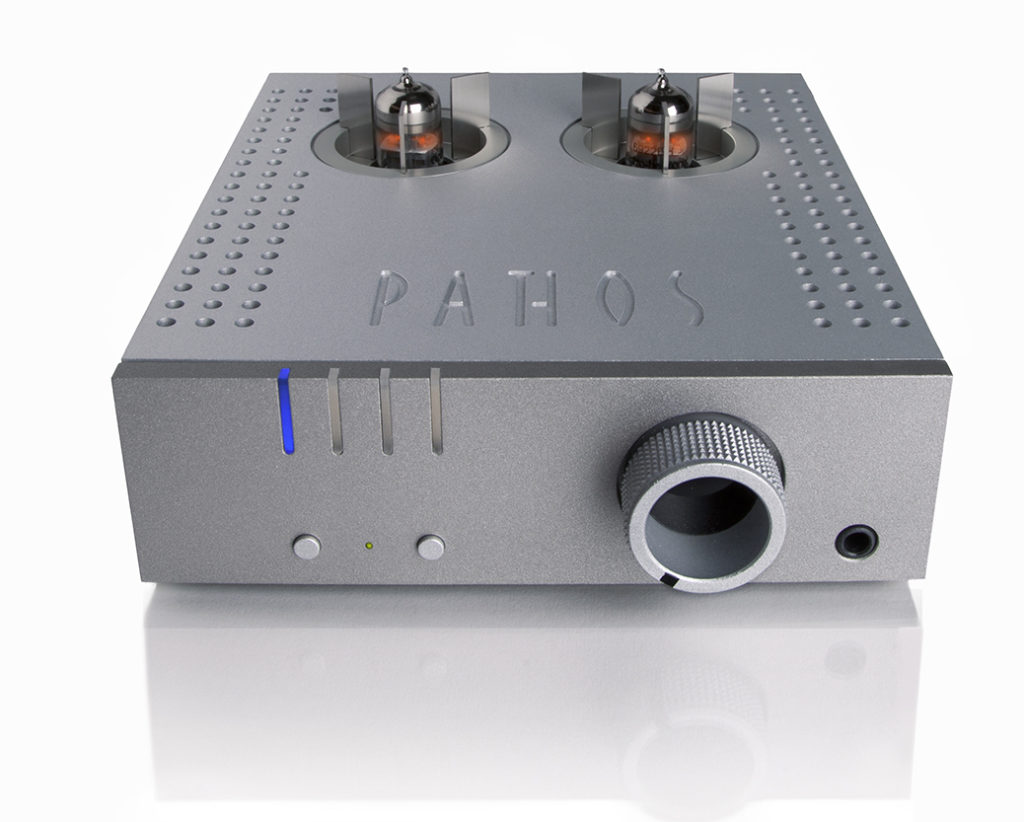
OUR VERDICT
If you’re serious about using headphones in the home this Pathos is a top class choice of amplification
FOR
- Sweet, insightful midrange
- Bass power and grip
- Excellent build and finish
- Plenty of inputs
- Distinctive appearance
AGAINST
- Provided price isn’t an issue – nothing
Few companies combine style with substance as well as Pathos. Based in Vincenza, Italy, this hi-fi specialist has consistently turned out products that are as pleasing to the eye as they are sweet to the ear.
We’re happy to report the Pathos Aurium headphone amplifier continues that fine tradition.
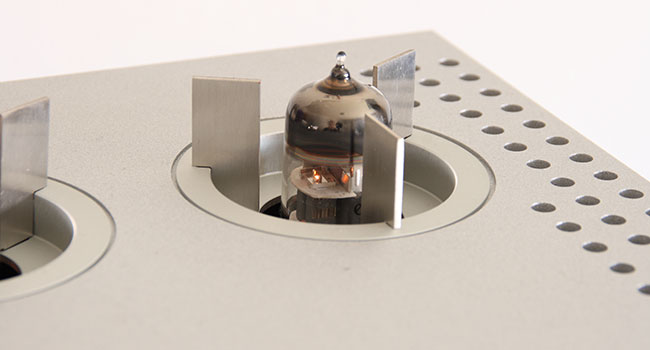
Pathos Aurium review: build quality
We’ve had no reason to complain about Pathos’ build quality in the past and it looks like we won’t need to start now. The Aurium feels beautifully made and is as solid as you like. It’s clear Pathos has taken a great deal of care in getting the fit and finish of this product just right.
Some may not take to this headphone amplifier’s extrovert appearance, but for us it’s preferable to the usual anonymous black or silver box.
If we were to criticise something, it would be the feel of the volume control knob. While precise enough, we think it could do with more resistance in its movement to reinforce the product’s quality feel.
Pathos has long favoured hybrid amplification that mixes valve and solid-state electronics – the idea is to combine the sweetness of valves and the grip of solid state. In our experience most components that try the hybrid approach never quite manage to pull it off. The Aurium, like most Pathos products we’ve heard, gets it right.
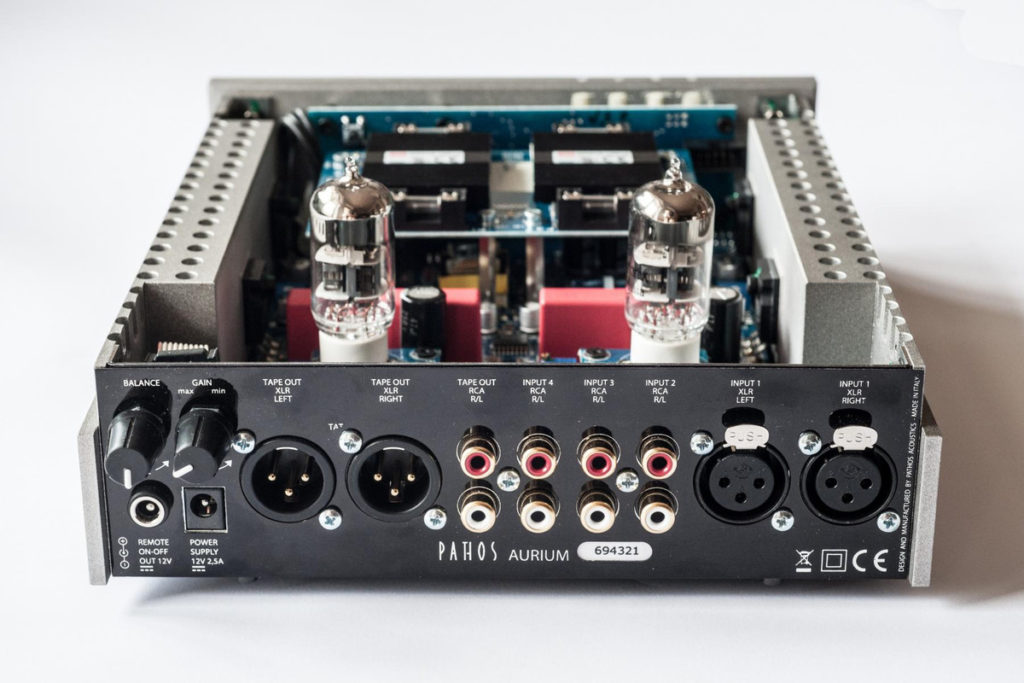
This distinctive headphone amplifier uses a pair of small 6922 valves operating in Class A to handle pre-amplification duties, while a MOSFET output stage does the donkey work of actually driving the headphones.
The power output is claimed to be 3.6 watts in total into a 32ohm load. We tried Beyerdynamic T1 headphones, the Grado RS1s and Sennheiser HD595s, and didn’t have an issue driving any of them to high levels.
The Aurium’s power supply is an external unit that connects by a long umbilical cable. External power supplies are usually a good thing, because they take high currents and potentially large magnetic fields – things that are inherent in such modules – away from the sensitive audio circuits.
Pathos Aurium: features
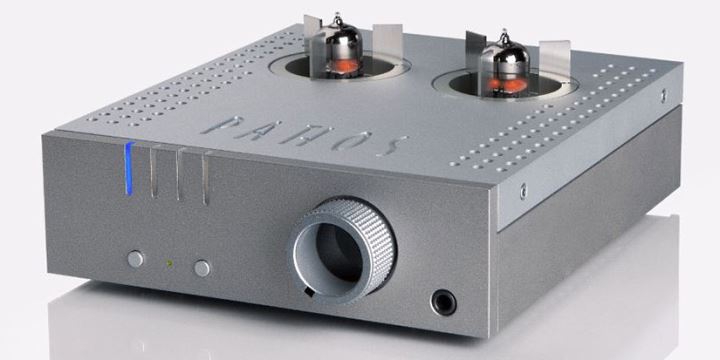
By headphone amplifier standards the Aurium is well equipped. It has four line inputs, one of which is balanced. There’s also a choice of balanced and single-ended tape outputs – these can be used for recordings or as a pass through if you want to integrate the Pathos into your main system.
We’re glad to see a balance control, even if it is on the back panel, and wish more headphone amplifier’s had a gain control like the Aurium’s. This lets us fine-tune the volume for different headphones.
Here’s how it works. Headphones differ in sensitivity, so with some you may not be able to use much volume control travel before the music becomes too loud. In that case you can lower the Aurium’s gain, so that more volume control travel can be used – this gives greater control over the listening volume at low levels.
One tip about installation. While this Pathos doesn’t run particularly hot when in use, it still makes sense to put it somewhere where there’s a good level of ventilation to ensure things run properly and reliably.
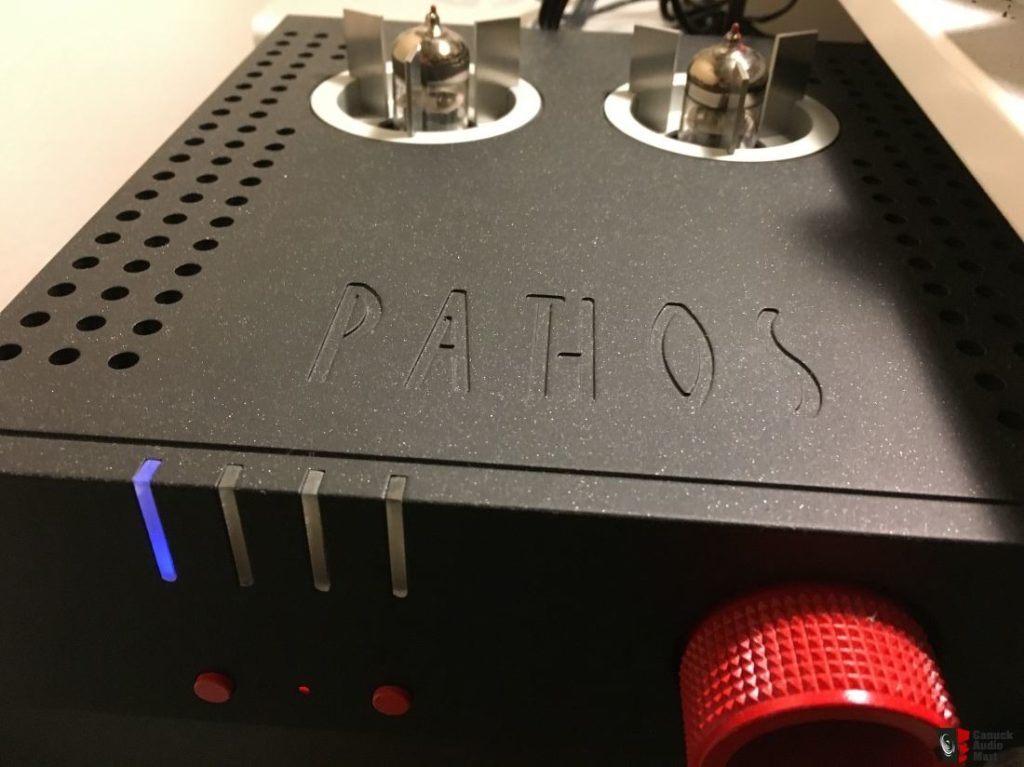
Pathos Aurium: sound quality
We like this headphone amplifier a lot. The sound is a wonderfully seductive combination of transparency and grip. From the midrange upwards the Aurium is as detailed as you like.
Listen to the violin in Arvo Part’s Fratres and the clarity is spellbinding. Not only does the amp have a firm grip of the leading and trailing edges of each note played, it shades the bits in between, revealing far more of the sonic texture of the instrument in the process.
The same applies to vocals, as a 24-Bit/44.1kHz of the Unthanks’ Here’s the Tender Coming shows. On this track, the group’s voices sound as subtle and communicative as we’ve heard through headphones, possessing a good degree of solidity and weight too. Thankfully, despite resolving plenty of detail the Aurium sound never feels clinical or overtly analytical.
It’s at bass frequencies that this Pathos surprises, and the solid-state part of its circuit makes itself felt. The lows on The Dead Weather’s 60 Feet Tall are a taut as you like, and pack a hefty punch with it. There’s everything you’d want in a bass performance; power, reach and agility.
Such is the Aurium’s muscularity in this region that it would be easy for bass to dominate the proceedings, but that’s where Pathos has judged things just right. That delicate and expressive midrange somehow isn’t overshadowed, and the presentation doesn’t sound unbalanced. It’s a neat balancing act.
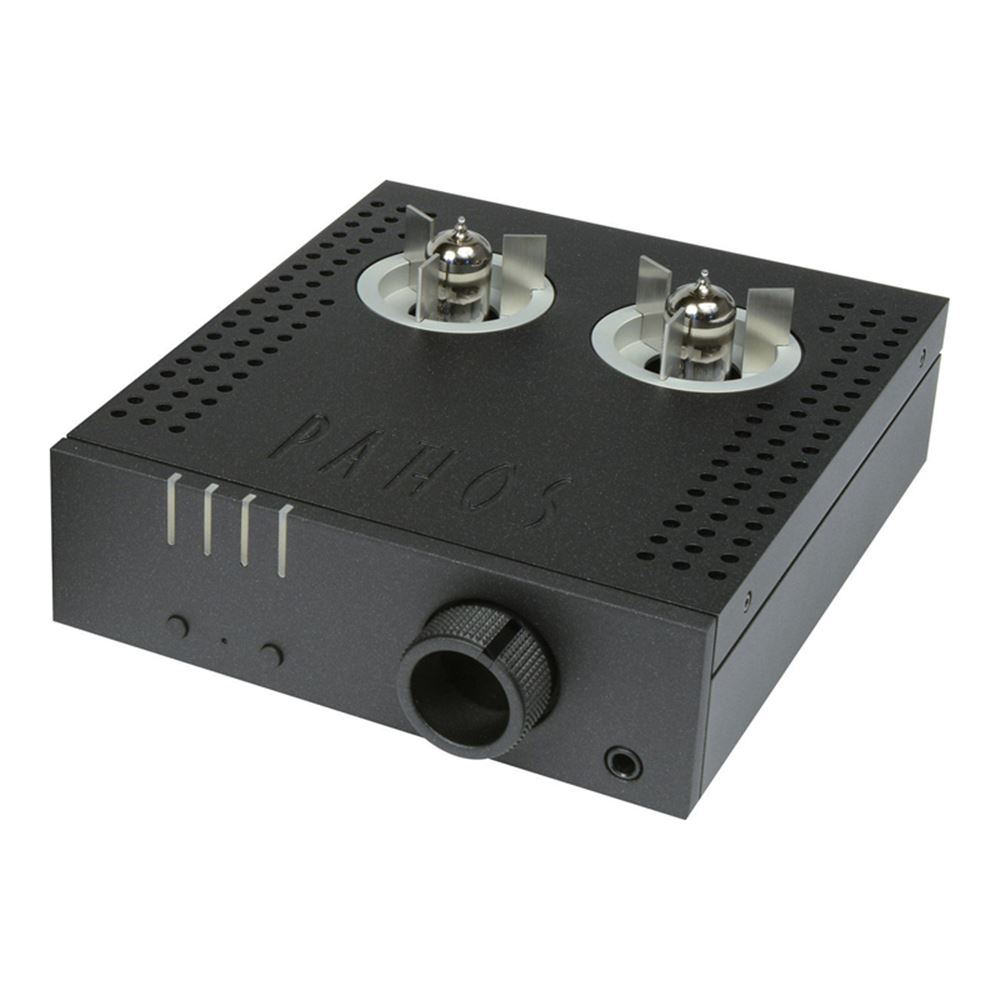
Pathos Aurium: verdict
It’s only worth spending this kind of money on a headphone amplifier if you’ve got a source and a pair of headphones worthy of such a product.
That means a source of at least Audiolab 8200CD level coupled with something like the Grado SR325is as a bare minimum as far as headphones are concerned.
With that kit (or better) the Pathos Aurium give you a large slice of high-end sound in a neat little package.
Read more at: https://www.whathifi.com/pathos/aurium/review
0 Comments